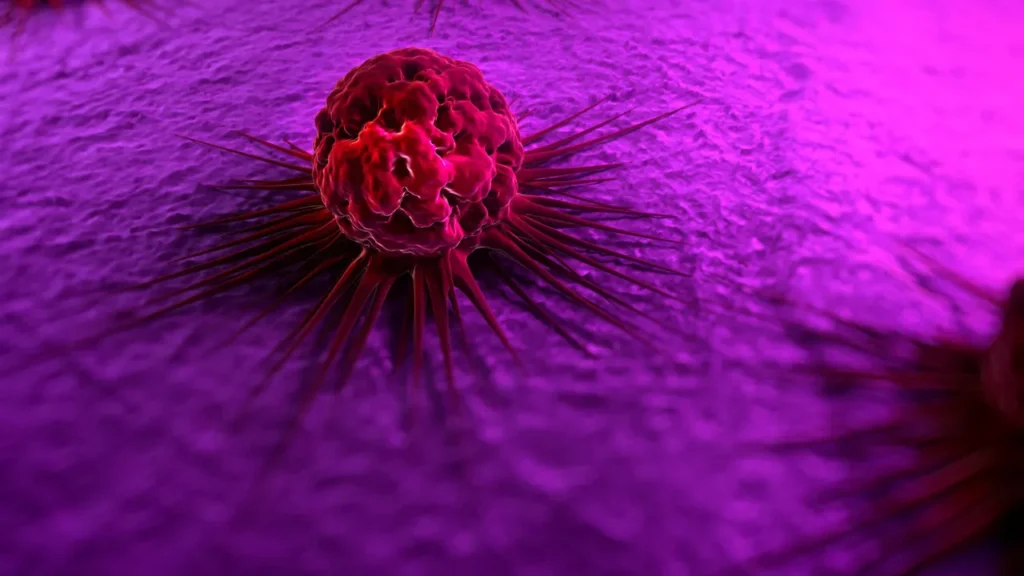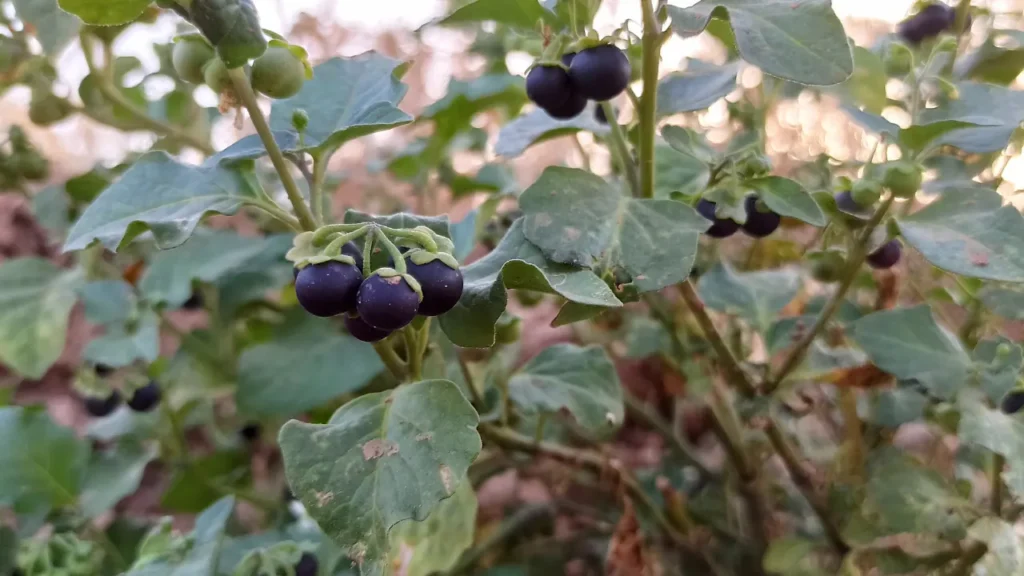The plant species known as Black Nightshade (Solanum nigrum), a member of the Solanaceae family, has long been valued for its therapeutic and dietary benefits in many different civilizations. This article gives a thorough explanation of the composition, health advantages, recommended dosage, negative effects, possible drug interactions, and appropriate usage of this dietary supplement. Additionally, it explores the chemistry of Black Nightshade as well as its physiological effects on the body and brain.
You May Also Like:
5 Great Nootropic Herbs for Energy, Focus, and Productivity
Wormseed: Benefits, Dosage, Side Effects, Drug Interactions, and Other Important Information
Black Nightshade: Benefits, Dosage, Side Effects, Drug Interactions, and Other Important Information is an original (NootropicsPlanet) article.
The Nature of Black Nightshade
Black Nightshade also known as European Black Nightshade is a perennial herbaceous plant native to Eurasia, Africa, and the Americas. The plant is distinguished by its glossy, dark berries, white or purple flowers, and green, oval-shaped leaves. In particular, the berries have been ingested by people since prehistoric times because of their nutritional value and alleged health advantages. Alkaloids, glycoalkaloids, flavonoids, and phenolic acids are only a few of the bioactive substances the plant contains, that support its therapeutic effects.
Health Benefits of Black Nightshade
The following studies—among many others—have looked into the potential health advantages of black nightshade:
- Antioxidant Activity: It has been demonstrated that Black Nightshade contains powerful antioxidant properties that can help prevent chronic diseases like cancer, diabetes, and cardiovascular diseases by scavenging free radicals in the body and lowering oxidative stress.
- Anti-inflammatory Effects: Solasonine and solamargine, two glycoalkaloids found in Black Nightshade, have been shown to have anti-inflammatory effects by inhibiting the production of pro-inflammatory cytokines, prostaglandin E2, and nitric oxide (NO), among other inflammatory mediators.
- Neuroprotective Effects: Solasodine, one of Black Nightshade’s alkaloids, has been shown to have neuroprotective effects against neurodegenerative diseases like Alzheimer’s and Parkinson’s by inhibiting acetylcholinesterase and butyrylcholinesterase enzymes, which in turn improves cognitive function.
- Antimicrobial action: According to Panda et al. (2012), the plant’s numerous bioactive components have shown antimicrobial action against a variety of diseases, including bacteria, fungi, and viruses. This makes it a potential source of new antimicrobial drugs.
- Anticancer Potential: According to some research, the glycoalkaloids in black nightshade may cause cancer cells to undergo apoptosis, or “programmed cell death,” which would obstruct the spread of cancer cells to other parts of the body.

Chemistry of Black Nightshade
The medicinal qualities of Black Nightshade are a result of its bioactive components. The main categories of compounds are:
- Alkaloids: These nitrogen-containing substances, such as solasodine and solasonine, are in charge of a number of pharmacological actions, such as neuroprotective and anti-inflammatory.
- Glycoalkaloids: The main glycoalkaloids in Black Nightshade are solanine and chaconine. These substances have anti-inflammatory, anti-cancer, and anti-microbial activities. However, if consumed in large quantities, they can also be toxic.
- Flavonoids: These polyphenolic substances, including quercetin and kaempferol, have strong anti-inflammatory and antioxidant activities.
- Phenolic Acids: The antioxidant activity of the plant is influenced by substances like chlorogenic, ferulic, and caffeic acid.
Physiological Mechanisms of Action of Black Nightshade
The bioactive substances in black nightshade act on the body using a variety of physiological pathways, including:
- Antioxidant Activity: Black Nightshade contains flavonoids and phenolic acids that scavenge free radicals and lessen oxidative stress in the body.
- Anti-inflammatory Effects: Solasonine and solamargine, reduce the synthesis of inflammatory mediators such as prostaglandin E2 (PGE2), nitric oxide (NO), and pro-inflammatory cytokines. This activity causes less inflammation and may even help inflammatory disorders.
- Neuroprotective Effects: Solasodine inhibits the acetylcholinesterase and butyrylcholinesterase enzymes to have neuroprotective effects. It may protect against neurodegenerative illnesses like Alzheimer’s and Parkinson’s by maintaining higher levels of acetylcholine in the body.
- Antimicrobial action: Black Nightshade contains a variety of bioactive compounds that have been proven to have antimicrobial action against a variety of pathogens. These components include alkaloids, glycoalkaloids, and phenolic acids. The development of new antimicrobial medicines and the prevention of infectious disorders may both benefit from this characteristic.
- Anticancer Potential: Black nightshade’s glycoalkaloids, particularly solamargine, have shown that they can kill cancer cells through a process known as apoptosis. They can also slow the growth of tumors and prevent metastasis. Potential therapeutic advantages for cancer patients could result from this anticancer action.
Researchers and healthcare practitioners can more effectively use Black Nightshade’s therapeutic potential while minimizing its potential side effects and unfavorable responses by comprehending the chemical and physiological processes of action.


Optimal Dosage of Black Nightshade
The ideal Black Nightshade dosage is based on multiple variables, including the patient’s age, health, and the ailment being treated. As a result, it is essential to seek advice from a healthcare provider before beginning any supplementation. Generally speaking, it is acceptable to eat Black Nightshade berries in moderation as part of a healthy diet. However, there is disagreement regarding the precise dosage for medicinal uses, and additional study is needed to create standardized recommendations.
Side Effects of Black Nightshade
Even though Black Nightshade has many health advantages, it also has toxic ingredients like solanine and chaconine that can have negative effects if consumed in large amounts. These negative consequences could include nausea, vomiting, headaches, and, in extreme situations, convulsions and respiratory depression. Consuming just ripe berries and avoiding other plant parts is crucial because the danger of poisoning is increased in unripe berries, leaves, and stems.
Additionally, some people may react allergically to Black Nightshade, resulting in skin rashes, itching, or breathing difficulties. It is vital to stop taking the supplement and get help right away if any of these symptoms appear.
Potential Substance Interactions with Black Nightshade
Black Nightshade may interact with other drugs or substances causing negative side effects or reducing the effectiveness of the other drug. Among the possible interactions are:
- Anticholinergic Drugs: Solasodine blocks the enzymes acetylcholinesterase and butyrylcholinesterase. Anticholinergic medications like atropine, scopolamine, or benztropine may intensify the effects of other anticholinergic medications, increasing their negative effects.
- Anticoagulants and Antiplatelet Drugs: When combined with anticoagulants or antiplatelet medications like warfarin, heparin, or aspirin, Black Nightshade’s anti-inflammatory qualities may raise the risk of bleeding. If you are using any of these medications, you must speak with a medical practitioner before using Black Nightshade.
- Diabetes medications: Blood sugar levels may be affected by Black Nightshade’s potential hypoglycemic effects. Use in conjunction with anti-diabetic drugs may raise the risk of hypoglycemia. It is advised to keep an eye on blood sugar levels and speak with a medical expert before changing your dosage.


Responsible Use of Black Nightshade
The following rules should be followed to ensure the best and most responsible usage of Black Nightshade as a dietary supplement:
- Before beginning any supplements, speak with a healthcare provider, especially if you have existing medical issues or are taking other medications at the same time.
- Since the leaves, stems, and unripe berries have higher levels of harmful substances, only eat the mature Black Nightshade berries.
- Begin with a small dosage and raise it gradually as necessary, watching out for any side effects or unfavorable responses.
- Only purchase Black Nightshade pills from reputed producers who follow stringent quality control guidelines and offer transparent component and dosage labeling.
Black Nightshade:
Conclusion
Black mustard has long been a staple in cooking and recipes. Recently, studies found that the black mustard plant contains a wide range of phytochemicals that contribute to its anti-inflammatory, anti-cancer, and anti-bacterial ability. Its unique profile of phytochemicals includes glucosinolates, essential oils, and several phenolic compounds. Preliminary studies suggest these compounds greatly reduce oxidative stress and encourage wellness in promoting overall health. You must know that scientific research is essential to establish the efficacy, safety, and optimal dosage of black mustard supplement for human consumption. Hence, you should prioritize seeking professional advice from healthcare experts to ensure a well-informed and responsible approach to integrating this natural supplement into your health regimen.


References:
- Potential Anti-Inflammatory Steroidal Saponins from The Berries Of Solanum Nigrum L. (European Black Nightshade). Retrieved from:https://pubmed.ncbi.nlm.nih.gov/28486801/
- Solanum Nigrum Polyphenols Reduce Body Weight and Body Fat By Affecting Adipocyte And Lipid Metabolism. Retrieved from:https://pubmed.ncbi.nlm.nih.gov/31833514/
- Accumulation Of Anthocyanins Through Overexpression of Atpap1 in Solanum Nigrum Lin. (Black Nightshade). Retrieved from:https://pubmed.ncbi.nlm.nih.gov/32054115/
Important Note: The information contained in this article is for general informational purposes only, and should not be construed as health or medical advice, nor is it intended to diagnose, prevent, treat, or cure any disease or health condition. Before embarking on any diet, fitness regimen, or program of nutritional supplementation, it is advisable to consult your healthcare professional in order to determine its safety and probable efficacy in terms of your individual state of health.
Regarding Nutritional Supplements Or Other Non-Prescription Health Products: If any nutritional supplements or other non-prescription health products are mentioned in the foregoing article, any claims or statements made about them have not been evaluated by the U.S. Food and Drug Administration, and such nutritional supplements or other health products are not intended to diagnose, treat, cure, or prevent any disease.
